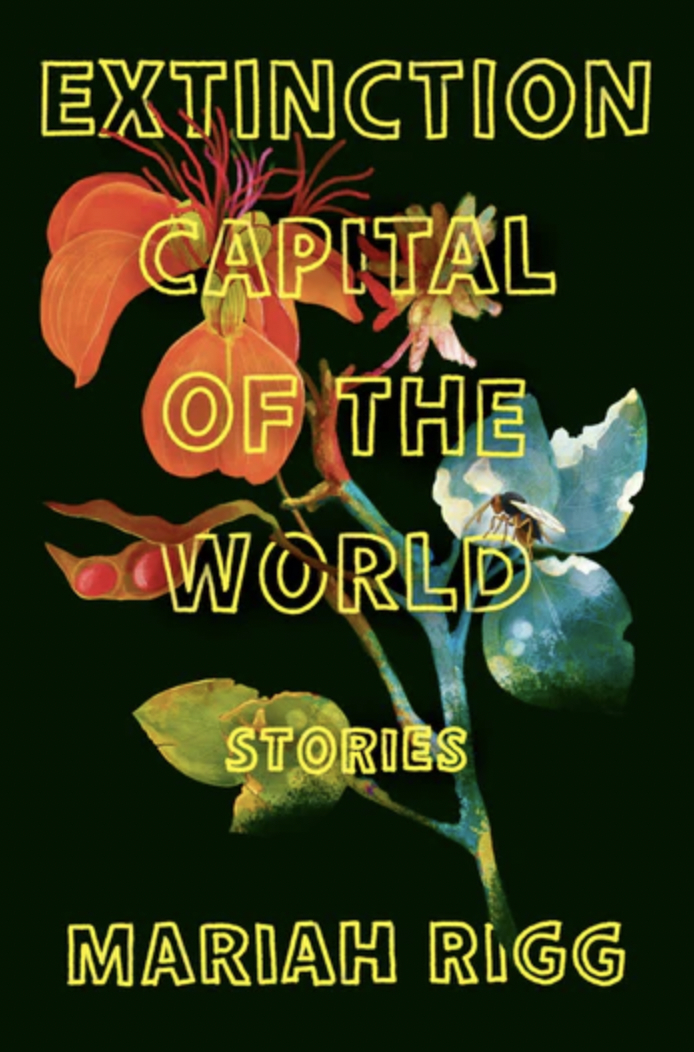We travel together to the outskirts of Alone. Hunger permeates the car like teenage funk, but there are no crumbs on the seats. I do not allow snacking.
I don’t know what is the most surprising—that a tumor grows inside me, that my love is not in the car, or that Hope sits in the backseat. A pillow, a book, and a look that annoys me every time I glance at her in the rearview mirror.
The first thing we notice is all the abandoned barns. Tools hang on hooks, waiting for hands. Someone with a knack and a purpose. Someone who never asks, “What’s the point?”
We also notice that the horseshoes around here float. No luck to be had, only a ceaseless bobbing of heavy things going this way and that, because water will have its way—flooding, pushing, creeping into the low spots, of which there are many.
After we park, after we wander, we discover all the houses are empty. The cafe with fake birch bark wallpaper, too. There are plates on the tables, flies on the food. This is not why I haven’t been eating lately. The only one at the table. I still don’t know how big, how bad this is.
Once we step inside the old mortician’s mansion on the dead end street, every door locks behind us. It doesn’t take long for the roots of the sprawling oak out front to find us, crawling between our ribs. Thick and thicker, open wide. I can’t think about our ribs without thinking of Adam. He grew Eve from a rib. She lived and sinned and then suffered. Now some say I’ve sinned, and that’s why I am growing this tumor that feeds and floats above my top rib.
As usual I’ve driven too far, but Hope doesn’t say it. She doesn’t say, “We should have stopped at Quiet,” where we could have happily explored the attic. First a wig. Then a wedding dress and a fan with the name of Pop’s hardware store on it. Oh my, ain’t I pretty? In Quiet, we might even have braved the cellar, gladly sitting for hours to watch the Mason jars work. Now we take the sour things and make of them a delight.
But here we are, on a mortician’s davenport that smells like my sick grandma. Will I start to smell sick? Do I already?
Hope tries to take my hand. I go into the kitchen and find the last two slices of unrotten bread. As they toast, I look out the window and see a pile of rusty nails, points up, on the sidewalk. The toaster pops, and I call her to the table.She dislikes toast—too dry for her taste—but it’s one of the few things I can stomach. We eat in silence.
I leave my plate where it sits and climb into the hourglass that stands next to the grand piano. I can tell she doesn’t want to, but she joins me. At first the sand feels like sand. Both of us remember the beach. The ocean big, doing wild things.
Then each grain falling on our heads becomes a moon. Living under a pile of moons sounds beautiful—light and night at their softest. What better wage can I earn in this life? But who can bear the crushing weight of even one minor ambassador of heaven?
Hope performs the only magic trick she knows. I hate her magic. And I miss it. How does she turn these heavy moons into bubbles? How does she get a breeze in here, to hold them up?
Betsy Johnson-Miller‘s work has appeared or is forthcoming in Boulevard, Columbia Poetry Review, Prairie Schooner, Alaska Quarterly Review, AGNI (online), and Hotel Amerika.




